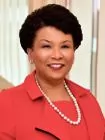The Department of Justice ("DOJ") in certain circumstances requires the appointment of a corporate monitor in connection with corporate criminal resolutions. Historically, women and lawyers of color have been underrepresented in monitorship selections. In response to public criticism (e.g., Dylan Tokar, Women and Minorities Lose Out in FCPA Monitor Selection Process, Global Investigations Review (Feb. 1, 2018)), the DOJ has taken steps to increase the opportunity for the selection of diverse monitors. Nevertheless, a look at the data establishes that monitor selection still underrepresents women and people of color.
This Jones Day White Paper outlines: (i) a summary of the monitor selection process in the criminal context; (ii) the history of diversity in monitor selection; (iii) potential causes of racial and gender disparities; and (iv) suggestions for considering monitor candidates.
MONITOR SELECTION PROCESS
Independent corporate monitors are sometimes required by the DOJ in criminal corporate resolutions, including plea deals, non-prosecution agreements ("NPAs"), and deferred prosecution agreements ("DPAs").1 Corporate monitors serve to independently assess and monitor a corporation's compliance with these agreements in an effort to reduce the recurrence of misconduct. Corporate monitorships are highly sought-after appointments, in large part due to the experience and reputation-building opportunity they offer. While corporate monitorships have long been criticized as costly and disruptive burdens on companies, it is clear the DOJ and other enforcement agencies continue to find value in the monitorship services.2
Since 2008, the DOJ has provided guidance on the process for appointing corporate monitors.3 In 2018, the then-Assistant Attorney General issued guidance on monitor selection in Criminal Division matters ("the Benczkowski Memo").4 According to the Benczkowski Memo, the first step in the current monitor selection process lies with the company rather than the government. The company submits a proposed pool of three qualified monitor candidates to attorneys working in the Criminal Division. The government then evaluates the adequacy of the company's proposed pool of candidates, assessing each candidate's qualifications and credentials using the following criteria:
- General background, education and training, professional experience, professional commendations and honors, licensing, reputation in the relevant professional community, and past experience as a monitor;
- Experience and expertise with the particular area(s) at issue in the case in an organizational setting;
- Degree of objectivity and independence from the Company so as to ensure effective and impartial performance of the monitor's duties;
- Adequacy and sufficiency of each candidate's resources to discharge the monitor's responsibilities effectively; and
- Any other factor related to the qualifications and competency of the candidate, as they may relate to the tasks required by the monitor agreement and nature of the business organization to be monitored.5
If the DOJ prosecutors investigating the matter determine that any of the candidates are not qualified to serve as the monitor, or if they are not satisfied with the candidates proposed by the company, then the DOJ reserves the right to request that the company nominate additional candidates. If any of the proposed monitors are rejected, the company must propose additional candidates within twenty business days after receiving notice of the rejection. The process continues until the DOJ lawyers handling the matter determine that they have three qualified candidates from which to choose.6 Once there are three qualified candidates, one of the candidates is recommended to the Criminal Division's Standing Committee on the Selection of Monitors ("Standing Committee"). After reaching a decision, the Standing Committee will submit the proposed monitor to the Office of the Deputy Attorney General for final approval.7
HISTORY OF DIVERSITY AND INCLUSION CONCERNS FOR MONITORS
Historically, publically available information regarding the monitor selection process was scarce. This changed in March 2018 when, following a court order upholding a Freedom of Information Act request from a journalist, the DOJ was required to release monitor candidate information for Foreign Corrupt Practices Act ("FCPA") settlement agreements.8
According to that publicly available information, the DOJ appointed 48 FCPA monitors between 2004 and mid-2018. Of the 48 monitors, only three were women, and only three were non-white males. No women of color were selected.9 Interestingly, the candidate pools put forward by companies between late 2009 and early 2015 were all male.10
Shortly after the release of this information, a "diversity and inclusion" provision was incorporated in an April 2018 DPA for Panasonic Avionics Corporation-the first, but not the last, of its kind. The provision stated that "[m]onitor selections shall be made in keeping with the Department's commitment to diversity and inclusion."11 In addition, in April 2020, in an attempt to strengthen transparency, the DOJ's Fraud Section published a list of lawyers currently assigned to a monitorship.12 Of the eight current corporate monitors appointed in connection with seven corporate resolutions listed on the DOJ's website, two of the monitors were selected before the newly implemented diversity and inclusion provision in corporate plea agreements.
Both of those monitors are white men. Of the six monitors selected after the implementation of the diversity and inclusion provision, three are women and one is a Black man. A woman of color has yet to be appointed. The "diversity and inclusion" monitor provision has become fairly routine since 2018, although the language itself changed during the Trump administration.
The "diversity and inclusion" provision as drafted during the Obama administration has appeared in approximately half of the Fraud Section's agreements that include monitorship appointments since 2018. The other half since 2018 included a provision drafted by the Trump administration DOJ that changed the boilerplate language to: "[A]ny submission or selection of a monitor candidate by either the company or the criminal division should be made without unlawful discrimination against any person or class of persons."
POTENTIAL CAUSES OF THE LACK OF DIVERSITY IN MONITORSHIPS
The limited diversity in monitorship appointments cannot be explained solely by existing gender and racial differentials in the legal profession. In fact, an informal survey of firm websites revealed that qualified women and people of color, both men and women, work at almost every chosen monitor's law firm.13 This disparity shows that more can be done to increase diversity in the monitor selection process.
More comprehensive data is needed to both assess and address the issue in a tangible way. While all of the appointed monitors for the DOJ Fraud Section are now published, only a portion of data is currently available regarding the composition of monitor candidate pools. The limited candidate data strongly suggests that patterns of decisions impacting diversity can primarily be traced back to the original pools submitted to the DOJ, which routinely consist of three non-diverse candidates. Fully understanding these patterns will help identify changes in the monitor selection process necessary to meaningfully increase diversity. Exploring ways to increase diversity in monitorship candidate pools is a worthwhile effort. Putting forth more diverse candidates is also in line with the current trend among large corporations mandating the consideration of at least one woman and one person of color for prominent positions, including board membership.14
CONCLUSION AND SUGGESTIONS
While the DOJ has recently taken steps to promote transparency and diversity in Fraud Section monitor selection, women and people of color still have limited representation in monitorships. No woman of color has ever been selected, even after diversity measures were put in place. In order to achieve true parity and positively transform the future of the legal profession, the DOJ and the legal profession as a whole need to take greater steps to promote diversity-and, as the data indicates, that opportunity begins with the company subject to the monitorship. Companies faced with selecting monitors should consider women and diverse candidates for submission to DOJ. Indeed, companies should consider proactively reaching out to their trusted outside counsel for suggestions to expand the potential pools of candidates-and thus those attorneys with monitorship experience. In selecting candidates, companies should also consider lawyers with relevant, but less traditional experience in the monitor setting because, of course, lawyers will never gain traditional experience if they are never chosen.
The factors enumerated by the DOJ as relevant to this consideration do not include a requirement of prior monitorship experience and broadly include lawyers with various backgrounds, experience, and skills. Even looking at Jones Day alone, at least 20 women and/or lawyers of color would be considered "qualified" for a monitorship. See List of Contacts. Similarly, across the United States, there are countless more women and diverse monitor candidates who could be considered for future monitor appointments by the DOJ. The issue is not a lack of qualified candidates; instead, the DOJ should do more going forward to ensure better representation in monitor selections.
Footnotes
1 Monitors may be appointed in a wide range of matters, including civil, criminal, or SEC enforcement actions. The research in this White Paper focuses on the criminal context. In addition, lawyers assisting corporations in navigating government allegations of misconduct generally attempt to avoid the appointment of corporate monitors; there are many arguments and techniques that can be used during negotiations to avoid such a monitorship. This White Paper, however, focuses on the instance in which the decision to appoint a monitor has been made.
2 In 2018, the DOJ seemingly acknowledged and attempted to address the significant burden of corporate monitorships on companies, requiring prosecutors to conduct a cost-benefit analysis when considering implementing a monitorship, as well as appropriately tailoring the scope of a monitor's role to minimize unnecessary disruption. See Memorandum from Brian A. Benczkowski, Assistant Att'y Gen., to All Criminal Division Personnel, Selection of Monitors in Criminal Division Matters (Oct. 11, 2018), https://www.justice.gov/opa/speech/file/1100531/download.
3 Memorandum from Craig S. Morford, Deputy Att'y Gen., to All Component Heads and US Att'ys, Selection and Use of Monitors in Deferred Prosecution Agreements (Mar. 7 2008), https://www.justice.gov/sites/default/files/dag/legacy/2008/03/20/morford-useofmoni-torsmemo-03072008.pdf .
4 Memorandum from Brian A. Benczkowski, Assistant Att'y Gen., to All Criminal Division Personnel, Selection of Monitors in Criminal Division Matters (Oct. 11, 2018), https://www.justice.gov/opa/speech/file/1100531/download .
5 Id. at 5.
6 Id. at 6.
7 Id. at 7.
8 Memorandum Opinion, Tokar v. U.S. Dep't of Just., No. 16-2410 (D.D.C. March 29, 2018), https://ecf.dcd.uscourts.gov/cgi-bin/show_public_doc?2016cv2410-18 ; Courtney Douglas, Reporters Committee Reaches Settlement with Justice Department After 5-Year FOIA Battle, REPORTERS COMMITTEE FOR FREEDOM OF THE PRESS (Jul. 17, 2020), https://www.rcfp.org/tokar-doj-foia-settlement/.
9 Richard Lissack QC et al., Monitorships, GLOBAL INVESTIGATIONS REVIEW (Jan. 15, 2019), https://globalinvestigationsreview.com/guide/the-practitioners-guide-global-investigations/the-practitioner-s-guide-global-investigations-third-edition/article/monitorships .
10 Waithera Junghae, GIR Live: How to Keep the Cost of Monitorships Down, GLOBAL INVESTIGATIONS REVIEW (Jul. 5, 2018), https://globalinvestigationsreview.com/article/1171376/gir-live-how-to-keep-the-cost-of-monitorships-down (citing Dylan Tokar, DOJ Records Offer Window Into Lucrative World of FCPA Monitorships, GLOBAL INVESTIGATIONS REVIEW (Jul. 2, 2018), https://globalinvestigationsreview.com/article/jac/1171163/doj-records-offer-window-into-lucrative-world-of-fcpa-monitorships) .
11 Deferred Prosecution Agreement, United States v. Panasonic Avionics Corp., No. 18-CR-00118 (D.D.C. Apr. 30, 2018), https:// www.justice.gov/opa/press-release/file/1058466/download . This language was first added to the Fraud Section's template monitorship agreement in January 2017-in the final days of the Obama administration. See Ines Kagubare, Criminal Division Changes Monitor Diversity Language, Sparking Criticism, GLOBAL INVESTIGATIONS REVIEW (Dec. 18, 2019), https://globalinvestigation-sreview.com/article/jac/1212277/criminal-division-changes-monitor-diversity-language-sparking-criticism . However, the language did not actually appear in a finalized agreement until April 2018; the Panasonic settlement was "the first time since the change was made that a company . . . had to retain an independent compliance monitor." See Clara Hudson, Lawyers Laud Criminal Division's Diversity Provision for Monitors, GIR Just ANTI-CORRUPTION (May 3, 2018), https://globalinvestigationsreview.com/article/jac/1168991/lawyers-laud-criminal-divisions-diversity-provision-for-monitors .
12 U.S. Dep't of Just., List of Independent Compliance Monitors for Active Fraud Section Monitorships, https://www.justice.gov/criminalfraud/strategy-policy-and-training-unit/monitorships (last visited Aug. 27, 2021).
13 In our informal survey, we reviewed past monitors' peers at their respective law firms. From there, we compared each monitor's qualifications with those of their peers. For almost all monitors, we were able to identify at least one woman and/or person of color with similar expertise with respect to the FCPA and other applicable anti-corruption laws.
14 See, e.g., Jena McGregor, New York City Comptroller Pushes 56 Companies to Commit to Diversity and Adopt the NFL's Rooney Rule, WASH. POST (Oct. 11, 2019), https://www.washingtonpost.com/business/2019/10/11/new-york-city-comptroller-pushes-companies-improve-diversity-adopt-nfls-rooney-rule/.
The content of this article is intended to provide a general guide to the subject matter. Specialist advice should be sought about your specific circumstances.









